Safe Passage: How Central Illinois law enforcement agencies are offering a path to help with addiction.
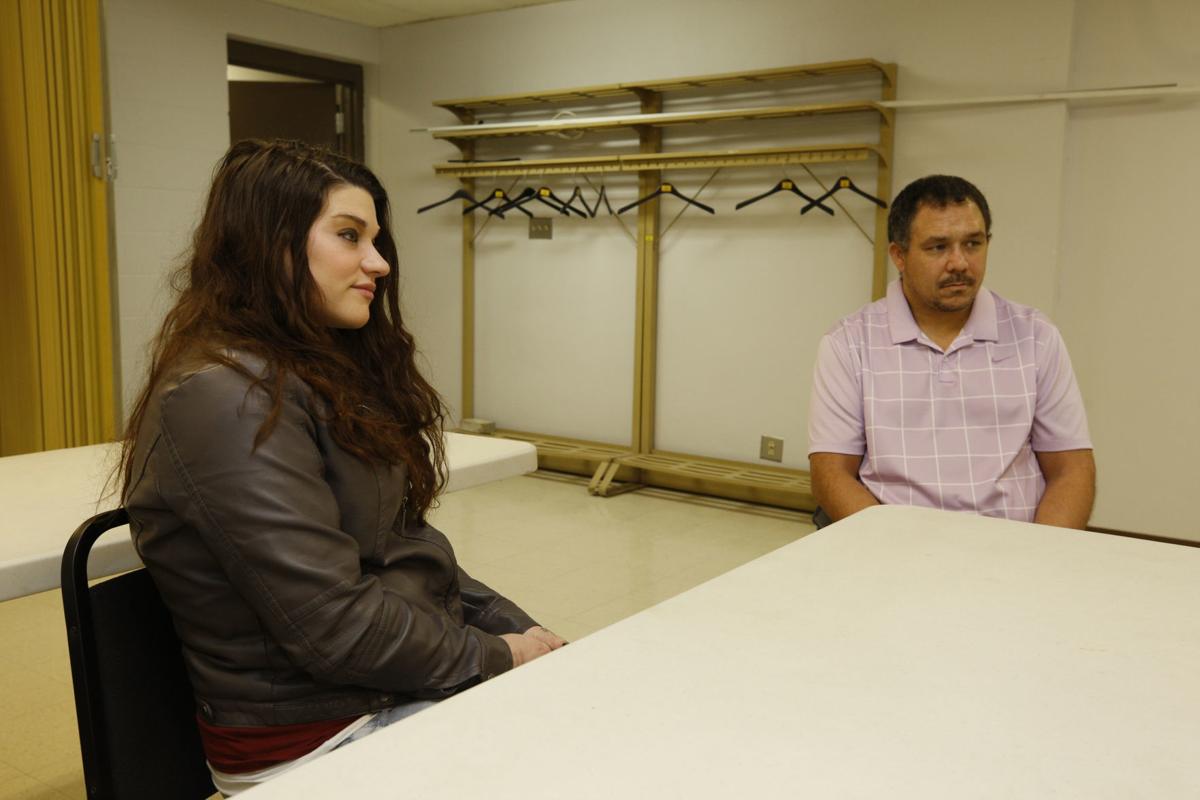
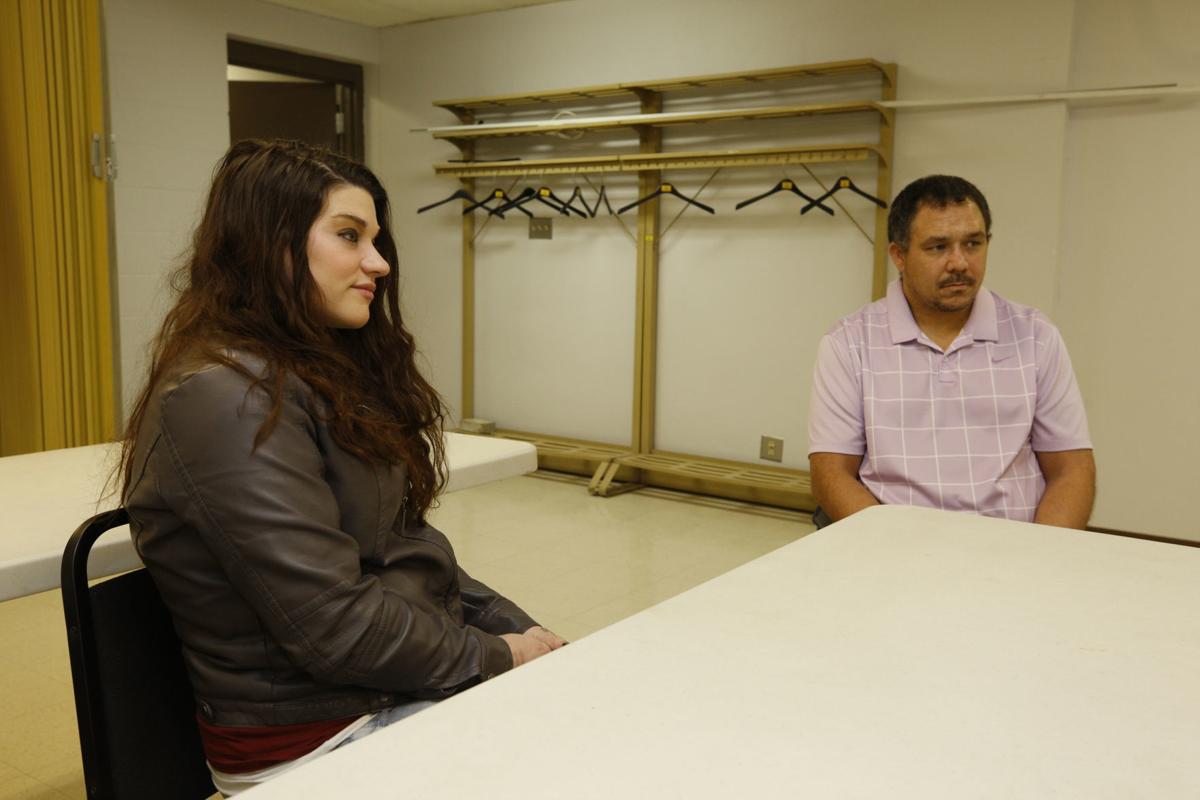
TAYLORVILLE — After more than two decades addicted to methamphetamines and various attempts at sobriety, Scott Patnode has has been clean for more than a year.
Patnode, 38, found success after approaching an administrator of Safe Passage, a recovery program designed to assist addicts and alcoholics with getting into detoxification and rehabilitation programs. The program, which is spreading throughout Central Illinois, allows people struggling with addiction to turn in their drugs and ask for help from participating law enforcement agencies.
Patnode acknowledges that his initial phone call to the Kincaid police station was to make himself look favorable in the court system.
“I was put on probation and they were going to send me to rehab regardless,” he said. “It made me look better that I went and did it on my own.”
Now he has good relationships with the police chief and his probation officer. “It’s great not having the worries,” Patnode said.
The first Safe Passage program in Illinois began in Dixon in 2015. Since then, other communities’ law enforcement agencies have adopted the initiative, including Taylorville, Kincaid, Pana, Springfield, Lincoln, McLean County, Livingston County and others continue to be added to the program, including most recently Mattoon. Gov. Bruce Rauner signed legislation in 2018 that made it easier for communities to implement programs.
“We have the same rules and guidelines,” said Denise Evans, Safe Passage coordinator in Taylorville.
While Macon County does not offer a formal Safe Passage program, the sheriff’s office does maintain a relationship Crossing Healthcare’s Recovery Center, a newly built treatment facility funded by former Sheriff Howard Buffett.
Safe Passage is an anonymous program in which coordinators contact various rehabilitation facilities for the addict. The client’s information is retrieved when he or she registers but remains with the facilitators. The not-for-profit program is funded by donations and grants.
The program’s expansion comes at a time when Illinois is grappling with a growing addiction crisis. In 2016, there were 1,946 opioid overdose deaths in Illinois — nearly twice the number of fatal motor vehicle crashes, according to the Illinois Department of Public Health.
Taylorville Chief of Police Dwayne Wheeler said a person who contacted rehab facilities outside of the Safe Passage program might face a roughly two-month wait time.
Since July 1, Evans has helped 60 clients into rehab facilities. “The success rate is probably close to 70% that are staying clean,” she said. “They have jobs now and are getting their families back together.”
After a bed has been found, volunteers transport the addict to a facility located somewhere throughout the state. Those affiliated with the program promise no judging. “We know it’s a disease,” Wheeler said.
Megan Middleton says Safe Passage was the first positive step she took toward staying clean. Middleton, 23, had started by using pain pills but eventually found herself a heroin addict.
“I was hurting everyone around me,” she said. “I didn’t care about anything at all.”
Middleton’s addiction cost her custody of one of her daughters. She is currently working to get her daughter back.
“I’ve been sober for a little over a year now,” she said. “I feel great.”
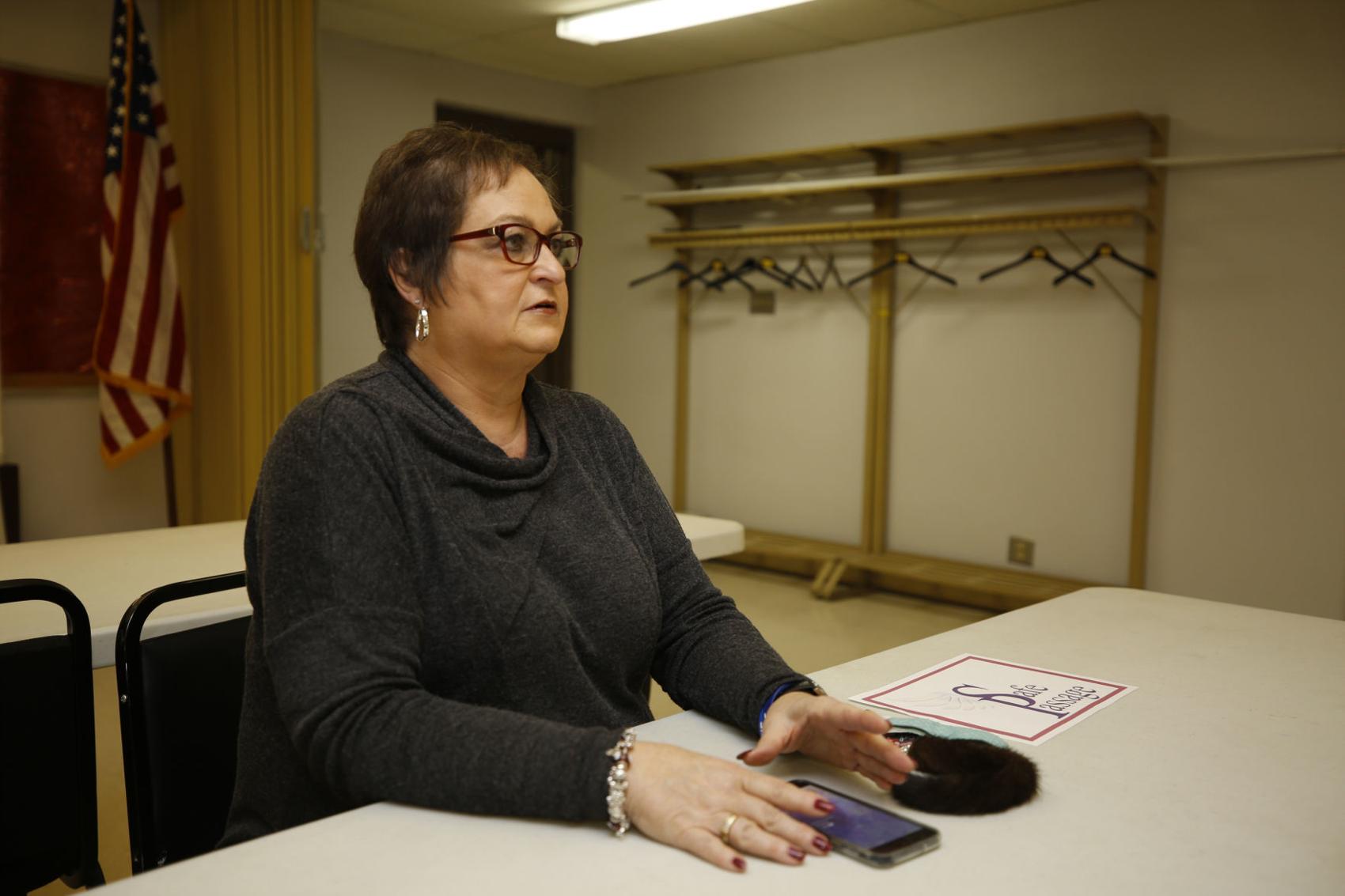
In Christian County, the addicted person’s first Safe Passage relationship often begins with a police officer, then the coordinator. In Taylorville, Evans has met people at their worst.
“When they make up their mind that they need help, they’ve usually lost everything,” Evans said. “They’ve hit rock bottom.”
Middleton’s life continues to improve. She has a secure home with her other daughter, her fiance and a job with the Department of Rehabilitation. “I feel better about myself and I feel healthy,” she said. “But I couldn’t do it on my own.”
Although the police station can be intimidating for anyone, especially an addict, Safe Passage volunteers promise safety and anonymity. The addicts come to the station on their own. “We don’t go out there and find them,” Wheeler said.
Coordinators encourage the addicts to arrive at the police station. When an addict calls from home, Wheeler has witnessed a change of mind by the next day. “At the police station, they know they are going to go (to rehab),” he said.
Wheeler has been an officer for more than 20 years. “This is by far the best community policing tool,” he said. “You are helping a person get better, you are helping the neighborhood, and the families. Crime drops.”
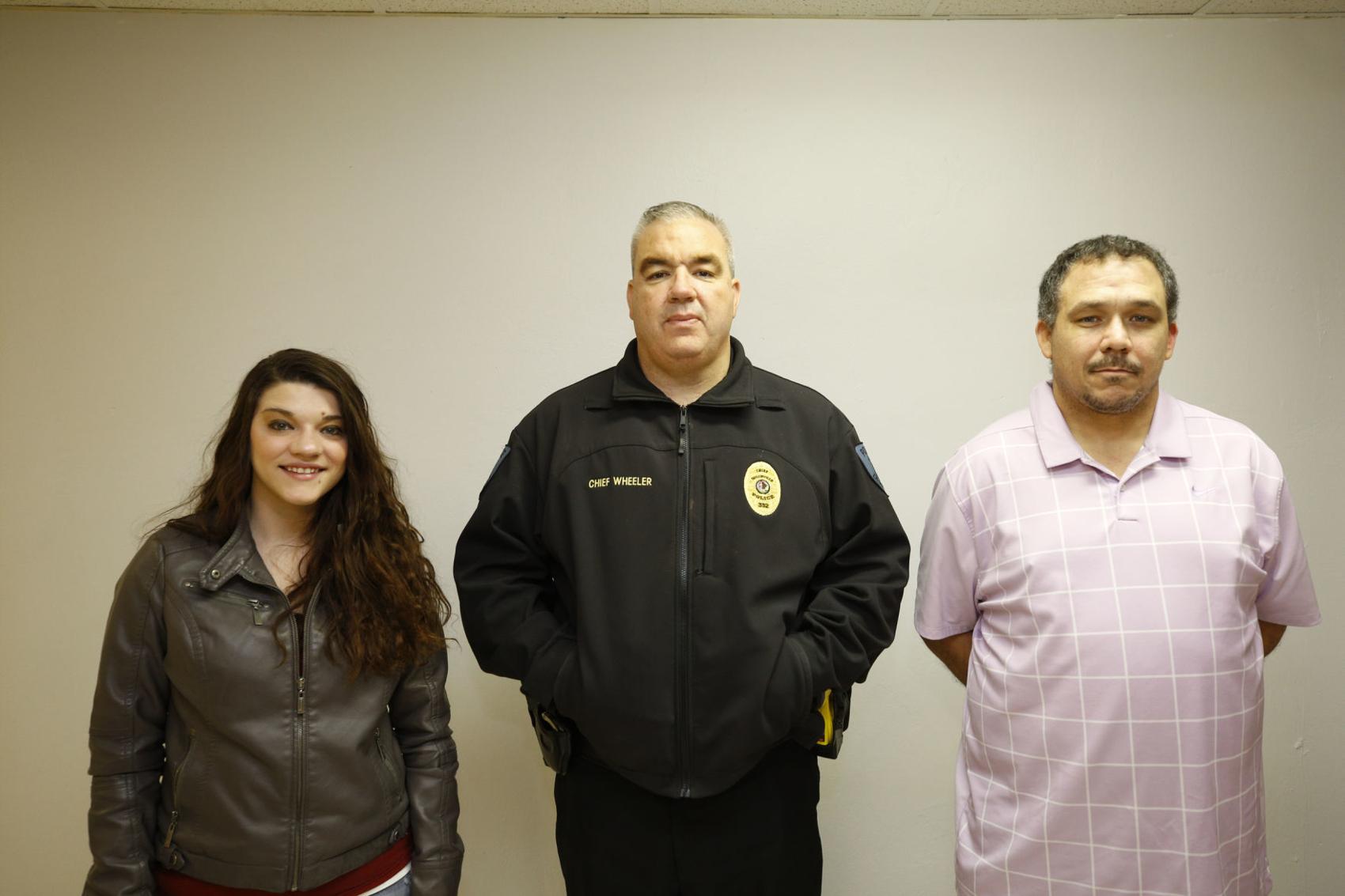
In the past two years, Christian County has had 160 people use the Safe Passage program, Wheeler said.
Before he came to Taylorville, Wheeler was the police chief in Kincaid, where he started the Safe Passage program in January 2018. Wheeler brought the program to Taylorville when he began his new job in July.
Drug abuse often leads people to commit other offenses, such as stealing to support the addiction. “But when you treat the addict, they don’t steal anymore,” Wheeler said. “And it cleans up the neighborhood.”
Christian County Judge Brad Paisley has witnessed the positive impact of Safe Passage firsthand. Paisley presides over juvenile and civil cases, as well as problem-solving courts which include drug, mental health and veterans treatment.
“Those are specialty courts where we’re trying to do something different than incarceration with people that are in trouble with the law, that have mental health problems or drug problems,” Paisley said. “It’s an alternative to prison where there’s structured programming.”
Paisley introduced Safe Passage to the county after learning of similar successful programs throughout the country. “It goes by different names, depending on where you’re at,” Paisley said.
The first program was started in Gloucester, Massachusetts, where Police Chief Leonard Campanello began to allow heroin addicts to come to the police department, turn in their drugs and paraphernalia and not be arrested. The Dixon program was modeled after this initiative.
Paisley said Taylorville and Dixon have similar demographics. “And they saw a 37% drop in their crime rate by doing nothing but implementing the Safe Passage program,” Paisley said of the original Illinois program.
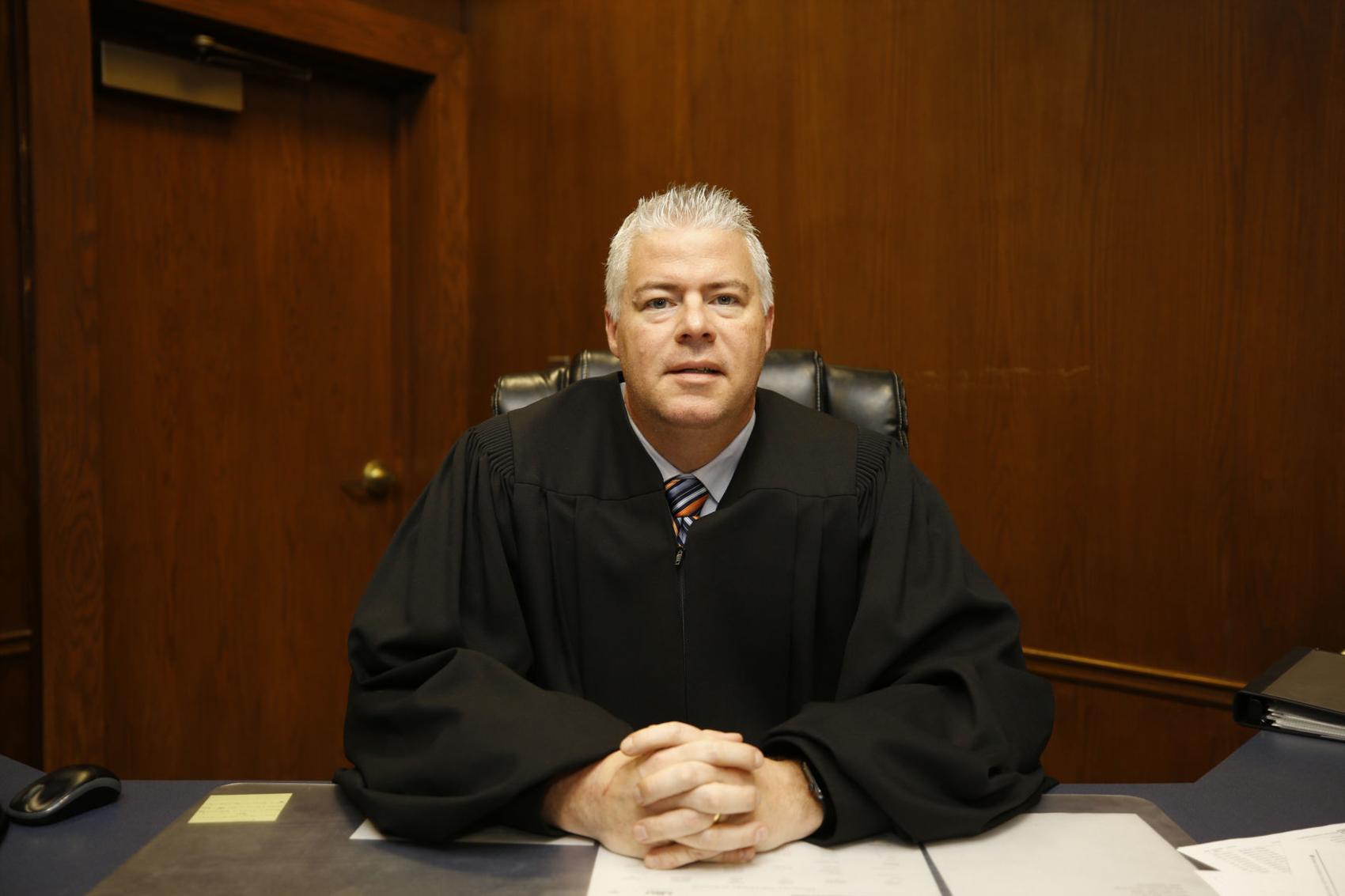
The fundamental plan for the program is to get the client out of the cycle of addiction. “With addiction comes crime,” Paisley said. “People steal to feed the drug habit or commit crimes of violence.”
Advocates argue that treating drug addiction remains far less costly than addressing the crimes and harm it causes. The Illinois Department of Corrections says the cost to incarcerate an inmate in Illinois for a year is approximately $38,000. Other statistics show roughly two-thirds will return to prison within three years of getting out, Paisley said.
“Your return on your investment, as a taxpayer, is there’s a two-thirds chance you’re going to be doing it all over again in three years,” he said. “And your communities aren’t any safer.”
Court-ordered drug treatment costs approximately $6,000 a year per client, Paisley said. He cited national statistics showing that nearly 77% of graduates will not get arrested again.
Safe Passage uses facilities that provide treatment, both mental health as well as for addiction. “We try to break that cycle of addiction, get them on the road to recovery and turn them into tax-paying citizens,” Paisley said.
Paisley has seen since 2011 that drug treatment plans could help some people charged with crimes. However, the justice system didn’t provide a pathway to help addicts who had not been charged with a crime.
Addicts might approach police officers asking for help. “(In the past), the only response that the officers could give was, ‘The only way I can help you is if I arrest you,’” Paisley said. “Which is a terrible answer.”
Now, those facing drug addiction in participating areas can come into the police station and get help immediately, Paisley said. Christian County judges and officers have already witnessed the positive effects of the program. Paisley said the majority of the cases he hears are somehow connected to drug abuse.
He often presides over juvenile abuse cases. “A large percentage of those cases are neglect involving parents that are addicted to drugs,” he said. “They may not have been arrested but they got their kids taken away.”
Paisley will suggest defendants contact Safe Passage to get help. “I’ll make the phone call for you,” he said.
Before Safe Passage was implemented, people facing addiction sometimes struggled to find a facility that could take them, and this turned out to be the biggest struggle for the new program once it was introduced.
“If you have a heroin addict or a meth addict that gets the courage up to walk into a police station, which is no small feat, and we tell them ‘come back in two or three months, they’ll have a bed,’ then they’re not coming back,” Paisley said. “They will be dead or in jail or out there in the wind.”
Gaining trust was another struggle. There were rumors that Safe Passage was a police tactic to get felons into the police station. “They thought it was some kind of scam by the police to trick people into coming in and then arresting them,” Paisley said.
Bloomington Police Public Affairs Officer John Fermon said his department to combat that rumor as well. Law enforcement agencies in McLean County announced in 2018 that they would implement the program.
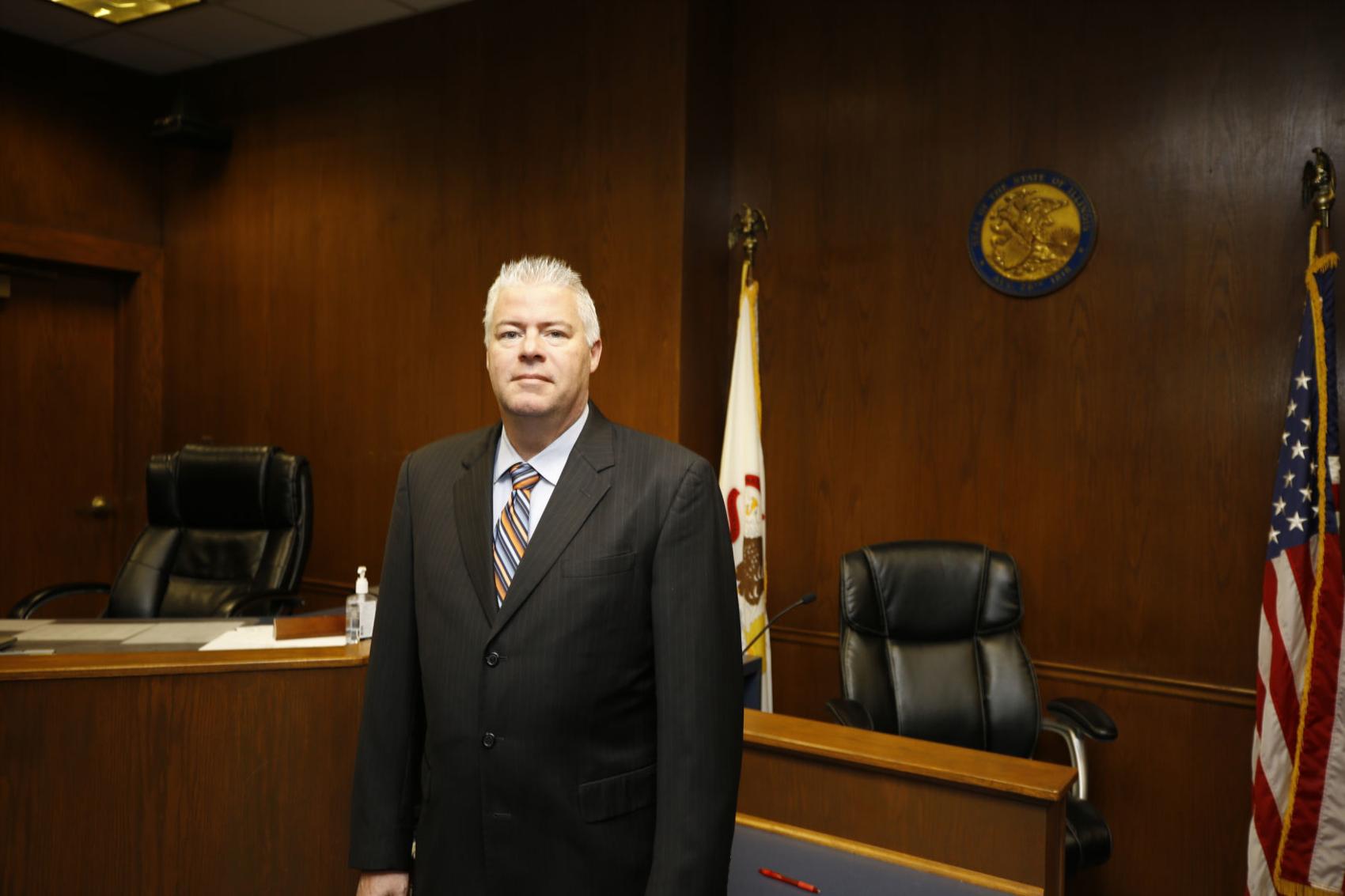
Judge Brad Paisley stands in one of the courtrooms of the Christian County Courthouse in Taylorville. “With addiction comes crime,” Paisley said. “People steal to feed the drug habit or commit crimes of violence.”
JEFF SMUDDE, HERALD & REVIEW“We don’t take the drug, then prosecute them,” Fermon said. “We drive them to a health center or hospital.”
Now, people know that they can reach out to police for assistance. “If someone approaches an officer, the officer can initiate the help. But it’s up to officers if they suggest Safe Passage,” Fermon said.
Pana Chief of Police Daniel Bland understands some might abuse the program to avoid accountability. “This program isn’t for people trying to get out of trouble,” he said. “This is for people who haven't had any other options.”
Bland has witnessed positive results. “There are some who are doing incredibly well and we are very proud of them,” he said. “They are also very supportive of the program which had a direct impact on turning their lives around.”
Mattoon Police Deputy Chief Sam Gaines is currently facilitating the start of a new Safe Passage program in his city. A successful program depends on volunteers and coordinators.
“If you have to turn people away, then you don’t have a program,” he said. “You have to have your ducks in a row.”
In order for the program to get off the ground, Gaines needed local and backup volunteers including drivers and coordinators. Like so many communities in Central Illinois, Mattoon is feeling the effects of drug addiction..
“Meth is an epidemic. It is everywhere,” he said.” We see a lot of meth arrests, but we are big on policing it too.”
The officers have come in contact with people addicted to prescription pills, alcohol and heroin as well. “We have a proactive department,” Gaines said. “They want to see the drugs get out of the community.”
Addicts with outstanding warrants will need to address the problem before they enter the program. However, Evans has often addressed the judge and probation officer on behalf of the client, if he or she wishes to take part in Safe Passage.
“I can start the procedure ... and getting them out (of custody) for that moment so they can get help,” she said. “But after their release, we take them right back to jail. From there they go to court and take care of their warrant.”
Often, alternatives are jail and eventually prison or fines. People with addiction can go through a detoxification on their own in jail, rather than in a program designed to monitor and help them.
Evans said participants are safe and not judged while they are part of a rehabilitation program. “It is a safe pass to a new life,” she said. “And within the 30 day program, they will feel completely different.”
Truth is a requirement. The experienced staff can recognize lies, as well as the stages of detox and withdraws.
Personal information is requested, including drug habits and medical history, since drug use can be the cause of many health related issues.
After 30 days, the participants attempt to find a job as well as attend group therapy. Sober living housing is available, along with group and individual therapy. Families are invited as well to the open meetings.
At the meetings, clients are allowed to be as open and honest as possible. “They let it all out,” Evans said. “That’s where they can. They let everyone know they are not ashamed of themselves.”
The meetings help addicts restart their lives. They learn they have to live differently, including associating with different people. “A couple may have been your dealers and your best friends,” Evans said. “You have to understand they’re not your friends.”
Instead of returning to drugs to ease the frustration, Patnode decided to continue improving his life by registering for welding classes.
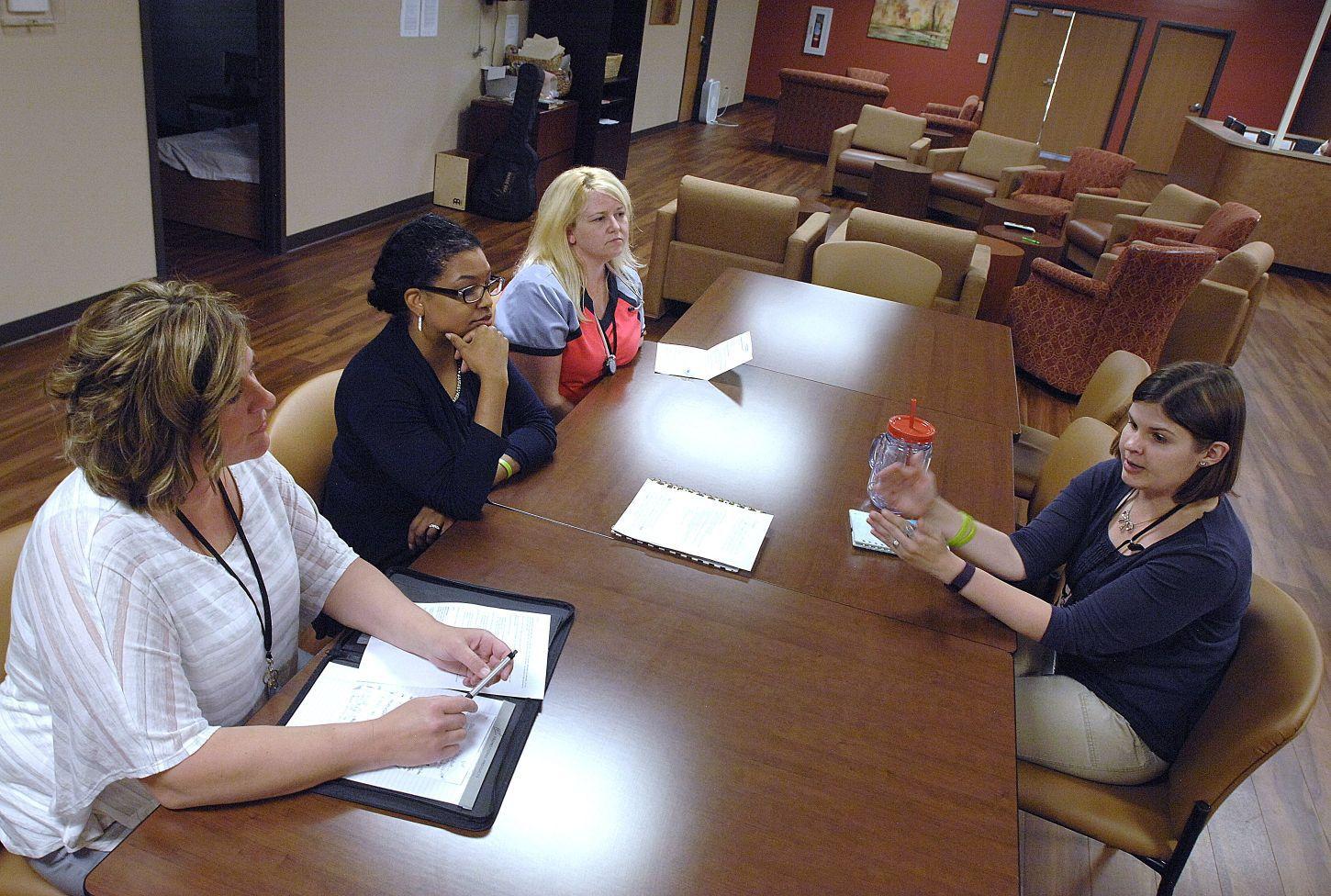

 Pathways Drug Rehabilitation Luxury Addiction Treatment & Detox Center
Pathways Drug Rehabilitation Luxury Addiction Treatment & Detox Center


